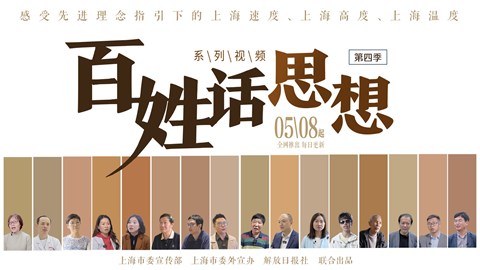Tea brand's use of revered literary figure sparks legal action
Tea drink brand Lelecha's use of Chinese literary giant Lu Xun's image for their new milk tea has sparked controversy and legal action.
On April 23, World Book Day, the company collaborated with Yilin Press to launch "Smoky Oolong" milk tea, in tribute to Lu Xun (1881-1936). Besides cups featuring Lu Xun holding a milk tea, the promotion included booklets, acrylic standees, and paper bags with his portrait. The campaign's slogan was "Old Smoker, New Youth."

One of Lelecha's Shanghai outlets displayed items using Lu Xun's image.
The collaboration featured several promotional events in Shanghai. One event was at a store in Xuhui District adorned with Lu Xun's image.

A Lelecha store in Xuhui District is adorned with Lu Xun's image.
The use of the phrase "Old Smoker" has also been deemed disrespectful.
Hu Bao, author of Shanghainese novel "Shanghai Alleys," noted that "chain smoker" in Shanghainese is also referred to as "old gun" because opium pipes resemble gun barrels in shape.
After cigarettes became popular, "old gun" came to denote someone addicted to smoking, a term with a derogatory connotation.
Ding Dimeng, a Shanghainese expert and associate professor at the Chinese department of Shanghai University, believes that altering "Old Smoker" to "Old Smoky" adds a touch of jest. While it might be acceptable for a joke, using it in public promotions, especially involving a celebrity, was inappropriate.

Yilin Press's promotion page for the new Lelecha drink.
Lu Xun's family instructed lawyers to send a cease and desist letter to Lelecha and the publisher, demanding an end to the infringement and compensation. The products in question have been removed from shelves.
The lawyers argued that although Lu Xun's copyright had expired, the rights to his name, likeness, and personality were still protected. His close relatives had the right to sue in court to protect their civil rights. The commercial use of his image could also violate advertising laws.
"I knew such a controversial slogan would make the drink be taken down," was one online comment. "The tea drink brand is just making quick money in the name of paying tribute to Lu Xun," was another.
Lu Xun, who was born on September 25, 1881, in Shaoxing, Zhejiang Province, and died on October 19, 1936, in Shanghai is widely regarded as the greatest writer in 20th-century Chinese literature. He was also a significant critic, known for his sharp and unique essays on the historical traditions and modern conditions of China.

Lu Xun in 1930.















